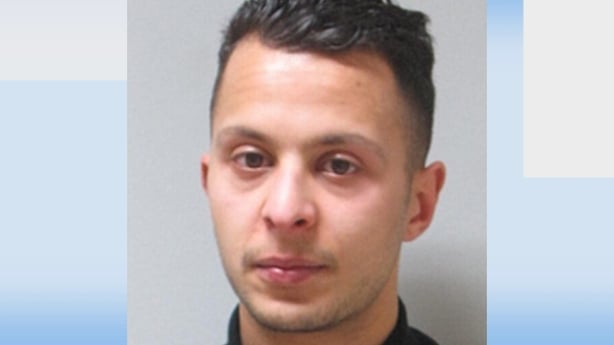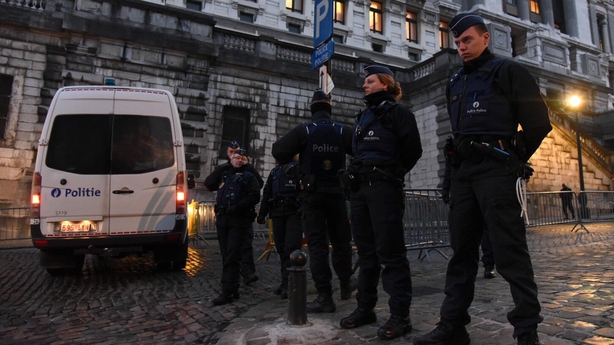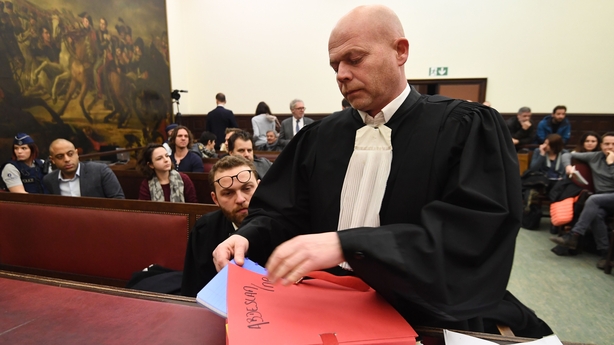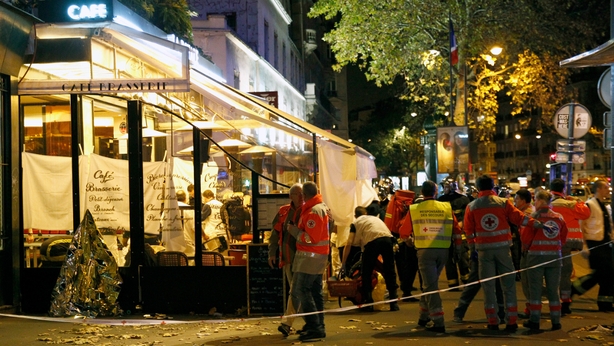The only surviving suspect of the 2015 terror attacks in Paris has said he would answer no questions in his trial in Belgium.
Salah Abdeslam's trial began under high security in his native Brussels, in relation to a shooting that preceded his capture and suicide bombings there in March 2016.
Appearing in public for the first time since the Paris attacks and his arrest in Brussels four months later, he remained seated, flanked by two masked Belgian police officers.
"I do not wish to answer questions," he said, when asked to confirm his name, refusing even to stand when asked to by the presiding judge.

After a first session during which his alleged accomplice, Sofien Ayari, admitted to having fought for the so-called Islamic State in Syria, and said that both accused were present during the March 2016 shootout with Brussels police, the judge again asked Abdeslam to speak.
Citing his right to silence and declaring his Muslim faith, he accused the media of condemning him before his trial: "Judge me. Do as you want with me," he told the judge.
"I put my trust in my Lord."
"I remain silent. That is a right which I have," he said, adding: "My silence does not make me a criminal or guilty.
"I am defending myself by remaining silent."
Kept under 24-hour suicide watch near Paris, the 28-year-old arrived in a French convoy under heavy guard at the Palace of Justice at around 8.30am local time.
He was transferred from a high-security prison close to France's northern border, and will be ferried to Brussels daily.
Hearings are scheduled to last all week in a case related to events four months after the Paris attacks of November 2015.

With a French trial not expected until next year, both men face up to 40 years in prison for attempted murder linked to terrorism for shooting at Belgian and French police who raided a suspected hideout in the southern Brussels borough of Forest on 15 March 2016.
Prosecutors say Abdeslam and Ayari slipped away, leaving a third gunman holding out until he was killed by police marksmen.
Lawyers for Abdeslam, a French citizen born to and raised by Moroccan immigrant parents in Brussels, accept he was in Paris on 13 November 2015, when gunmen and suicide bombers killed 130 at a rock concert, near the national stadium and outside cafes.

His older brother, with whom he ran a bar in Brussels, was among those who blew himself up.
Prosecutors believe the younger Abdeslam, whom they accuse of running logistics for the attack, including ferrying fighters from Syria across Europe, would have met the same fate had his explosive vest not malfunctioned.
How the pair, from a broadly secular background with a history of petty crime, were transformed into alleged cogs within extensive Islamic State cells operating in Belgium and France is unclear.
Abdeslam has so far shown little inclination to talk and a third brother, who has visited him in prison, told a Belgian newspaper in December that he might be preparing to talk inspired by a devout religious faith.

The trial had been due to start in late December but was delayed after Abdeslam belatedly reappointed a defence counsel, who then requested more time to prepare the case.
Lawyers do not rule out that there could be further adjournments this week.
The trial has triggered a high alert in a city where 32 people were killed in suicide bombings at its airport and on its metro system by members of the same Islamic State-inspired group on 22 March 2016.
That came four days after Abdeslam's arrest and was prompted, officials believe, by fears among the Brussels cell that he might betray their plan under interrogation.
More than 100 police are expected to be deployed in and around Brussels' mammoth 19th-century Palace of Justice, which dominates the skyline over the Renaissance city centre.

